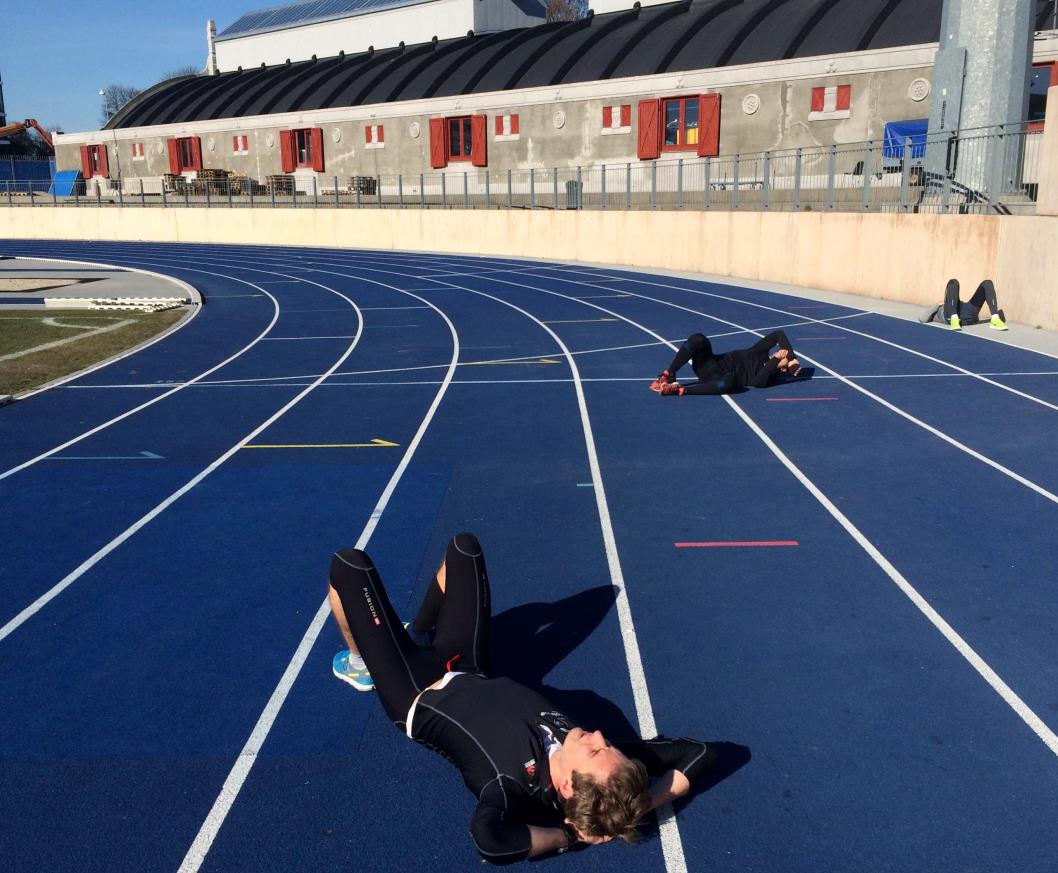Universitetsavisen
Nørregade 10
1165 København K
Tlf: 21 17 95 65 (man-fre kl. 9-15)
E-mail: uni-avis@adm.ku.dk
Ph.d.-forsvar
Ph.d.-forsvar — Casper Skovgaard is defending his PhD thesis: Intense training as a means to improve running performance in trained runners and the adaption of muscle tissue. The intense exercise response as well as the effect of 40 and 120 days of low-frequency intense training, 40 days of high-frequency intense training, tapering and repeated intense training interventions.
Date & Time:
Place:
Department of Nutrition, Exercise and Sports, Aud. 1, August Krogh Building, Universitetsparken 13, DK-2100 Copenhagen
Hosted by:
Department of Nutrition, Exercise and Sports
Cost:
Free
26 April 2017, 14:00
Aud 1, August Krogh Building, Universitetsparken 13, 2100 Copenhagen
Professor Bente Kiens (chair), Department of Nutrition, Exercise and Sports, University of Copenhagen, Denmark.
Professor emeritus Kent Sahlin, The Swedish School of Sport and Health Sciences, Åstrand Laboratory of Work Physiology, Sweden
Associate Professor Klavs Madsen, Department of Public Health – Sport Science, Aarhus University, Denmark
Professor Jens Bangsbo, Department of Nutrition, Exercise and Sports, University of Copenhagen, Denmark
Physical trainer Thue Kvorning, Team Danmark, Denmark
Professor John Hawley, Australian Catholic University, Melbourne, Australia
A 6-wk intense training period consisting of speed endurance training (repeated 30-s all-out running) and a reduced volume of endurance training, induce specific adaptations in type I and type IIa muscle fibers that may explain improved running economy and running performance in trained runners. A prolonged period (18-wk) of intense training as well as a period with increased intense training frequency leads to further improved short-term performance (<6 min) and maintained 10-km performance. Tapering, i.e. reduced training volume, improves short-term performance even further. A second 6-wk intense training period, after a period of habitual training, has a greater impact on short-term performance than the first intervention, while the gain in 10-km performance is of the same magnitude.
Collectively, these findings indicate that short-term performance does continuously improve with different compositions of intense training and that the gain in 10-km performance, which is associated with improved running economy, is obtained relatively swiftly. This, as well as the physiological adaptations and relevance of intense training is discussed.
Read more: http://nexs.ku.dk/english/calendar/2017/phd_casper-skovgaard/
